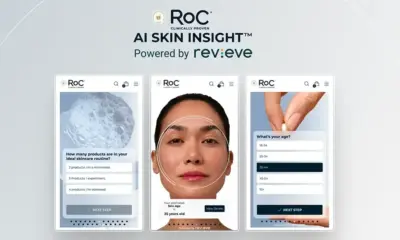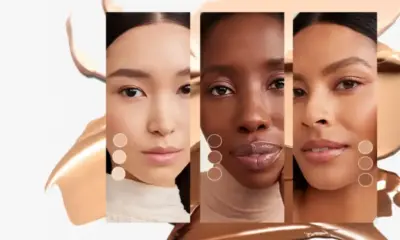Tech & Innovation
AI’s Lasting Impact: The Evolution of Retail Technology in 2025 and Beyond

2024 marked a significant year for AI, with the technology continuing to reshape industries across the board, including beauty and retail. Retailers and brands are increasingly incorporating AI for everything from store analytics to personalized recommendations. According to recent research, 42% of retailers are already using AI, while 34% are either piloting or considering AI initiatives. As AI adoption grows, we’re seeing it play an ever-larger role in transforming both business operations and customer experiences.
AI’s Lasting Impact: The Evolution of Retail Technology in 2025 and Beyond will be evident as this technology moves from being a “nice-to-have” feature to a critical component for any brand or retailer aiming to deliver personalized and interactive shopping experiences. Alice H. Chang, CEO of Perfect Corp., a leader in tech-driven beauty innovation, shared her insights with Happi on how AI is poised to expand in the beauty industry.
Chang predicts that in 2025, AI assistants and chatbots will become even more commonplace in beauty and fashion brands, offering tailored, on-brand responses through the use of proprietary data. In 2024, many e-commerce platforms introduced ChatGPT-powered chatbots to help streamline product searches and customer service. These AI tools have been shown to reduce shoppers’ mental load, streamline their experience, and boost sales conversions. Moving into 2025, brands will continue deploying AI chatbots, but increasingly with custom models trained on proprietary data, leading to even more relevant and informed answers for customers.
AI’s Lasting Impact: The Evolution of Retail Technology in 2025 and Beyond will also be felt as the beauty and fashion industries explore new virtual try-on capabilities. While virtual try-ons have already made a significant impact in cosmetics and hair care, apparel presents unique challenges. For clothing, technologies need to simulate how fabric moves on different body types, how it reacts to lighting, and the texture of materials. Jewelry and accessories will lead the way in integrating AI and AR to create more realistic virtual try-on experiences, and this will gradually expand into full clothing collections, leading to improved customer satisfaction, increased sales, and reduced returns.
As consumer priorities shift, particularly around mindful spending and sustainability, AI will further personalize shopping experiences. Many consumers are looking to make more intentional purchases, spurred by the growing trend of “de-influencing” on social media. AI will help them prioritize products tailored specifically to their needs, particularly in skincare where individual preferences are paramount. This hyper-personalization will encourage thoughtful consumption, with consumers choosing items that truly match their needs rather than following trends.
The lines between online, in-store, and social shopping continue to blur, and AI will play a key role in this convergence. Major third-party marketplaces and social shopping platforms like TikTok Shop are growing rapidly, while traditional brick-and-mortar stores are integrating new technologies to meet consumers’ changing needs. The evolution of shopping experiences into a unified, omnichannel approach will allow brands to create frictionless, personalized journeys, ensuring that consumers can shop wherever and however they prefer.
As AI continues to reshape the retail landscape, the focus will be on making the shopping experience more connected, personalized, and responsive to consumer preferences, ensuring that technology not only improves the customer journey but also drives future growth.





















